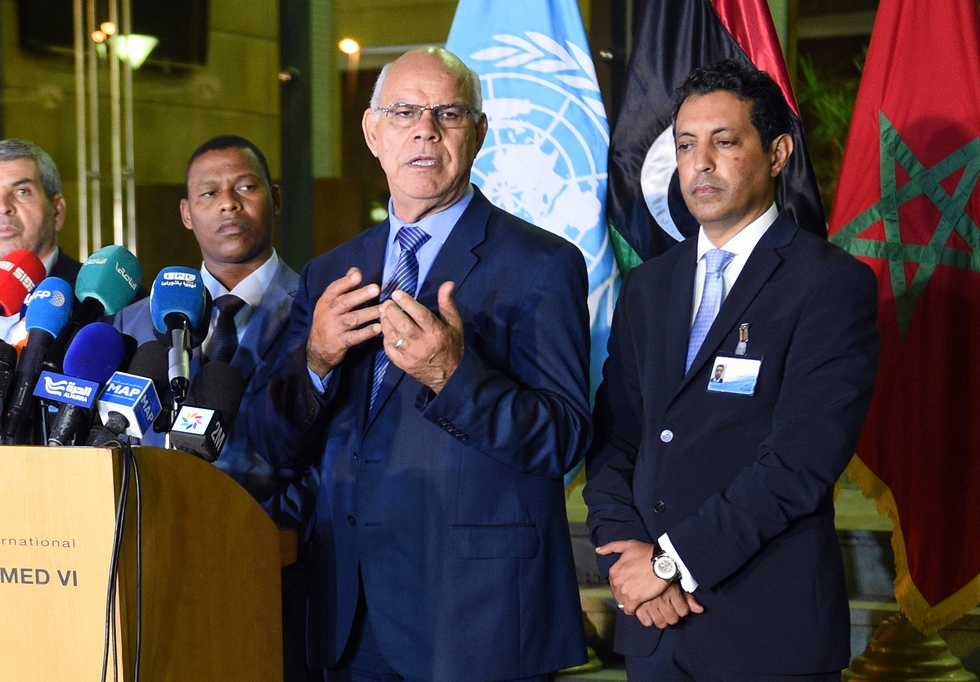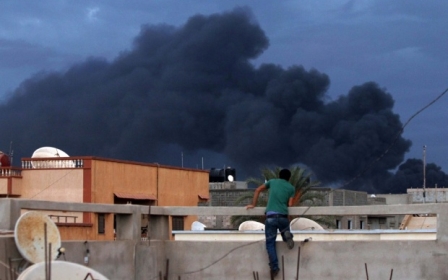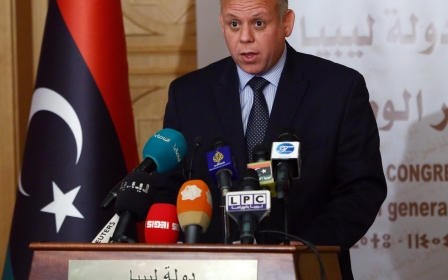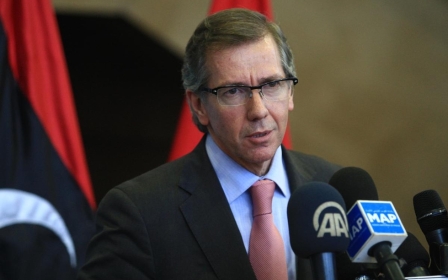Libya peace talks resume in Morocco

Libya's rival factions resumed talks in Morocco on Monday to try to move forward with a UN-brokered peace deal and agree on a national unity government.
The United Nations has been piling pressure on Libyan factions to take the final step and make the appointments after months of difficult negotiations and missed deadlines.
"The envoy of the UN Mission for Libya is meeting a number of negotiators on Monday," said UNSMIL spokesman Samir Ghattas.
Nearly four years after the fall and death of Libyan leader Muammar Gaddafi, Libya remains in chaos with two rival governments and parliaments.
The capital Tripoli is the seat of the General National Congress controlled by the Fajr Libya (Libya Dawn) coalition of fighters.
The city of Tobruk in the far east of the country near the border with Egypt hosts the internationally recognised parliament.
UN envoy Bernardino Leon has said that a deal should be reached before 20 October, when the mandate of the internationally recognised parliament expires.
The seaside resort of Skhirat near the Moroccan capital Rabat is again hosting the negotiations, two weeks after the previous round of talks adjourned for the Muslim feast of Eid al-Adha.
The UN mission on 22 September gave delegates to the talks a copy of the final text of the political agreement, saying it was the only option for Libyans if they do not want to lead their country into a political vacuum and uncertain future.
"Armed conflict and political instability has impacted over three million people across Libya," the Office for the Coordination of Humanitarian Affairs said in a report published on Thursday.
In a country of 6.3 million, "2.44 million people are in need of protection and some form of humanitarian assistance".
Last month, UN envoy Leon said that the last round of peace talks in Morocco could be a "moment of truth" for the country. The talks have missed several deadlines.
He called attacks by fighters affiliated to the Islamic State (IS) group in the country a "very concerning and very serious development".
Middle East Eye propose une couverture et une analyse indépendantes et incomparables du Moyen-Orient, de l’Afrique du Nord et d’autres régions du monde. Pour en savoir plus sur la reprise de ce contenu et les frais qui s’appliquent, veuillez remplir ce formulaire [en anglais]. Pour en savoir plus sur MEE, cliquez ici [en anglais].




